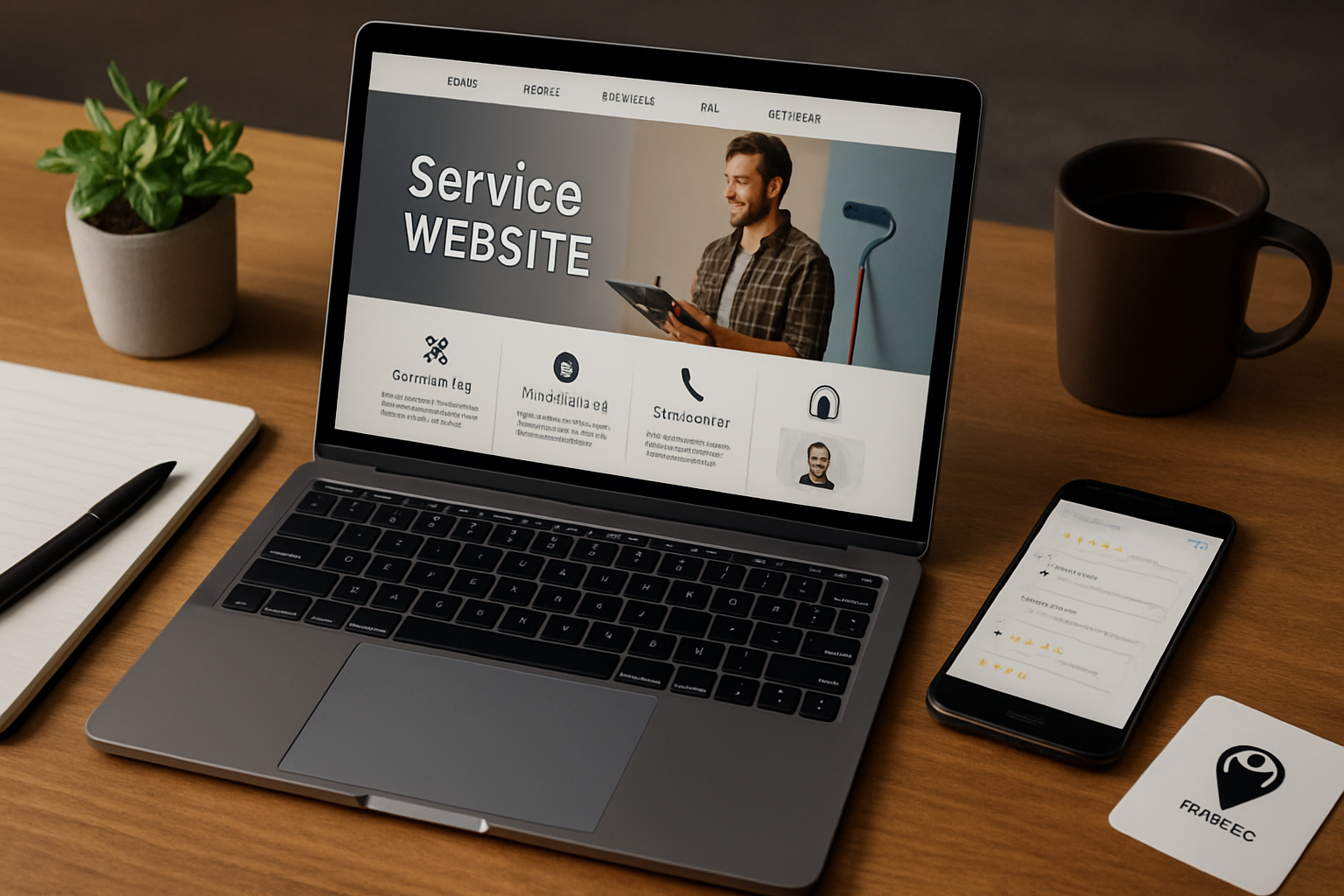Why Service Websites Are Essential for Business Growth in Today’s Digital Landscape

Table of Contents
- 1 What Are Service Websites and Why Do They Matter?
- 2 The Shifting Behaviors of Online Consumers
- 3 Building Credibility in a Distrustful World
- 4 SEO and Local Discovery: Getting Found Is Half the Battle
- 5 Content That Converts: What Your Service Website Should Communicate
- 6 Cost-Effective Tools and Strategies for Launching a Service Website
- 7 Adapting for the Future: Staying Ahead of the Digital Curve
What Are Service Websites and Why Do They Matter?
In today’s digital economy, businesses must adapt to meet customers online, with service websites becoming the standard for providing services. These platforms serve as the first point of contact for potential clients, representing a business’s expertise, solutions, and pricing. Transparent information and user-friendly experiences are crucial, as people often visit multiple sites before choosing a provider. An effective service website helps organizations appear credible, professional, and approachable in a saturated market. Home improvement contractors, consultants, and healthcare professionals all benefit from an effective digital presence in the service-oriented industry. Easy-to-update tools, such as EZ Service Websites empower even the smallest businesses, freelancers, and startups to create robust, functional websites without requiring advanced technical knowledge. This democratization of web tools enables owners to manage their digital image, respond to evolving client demands, and compete on a level playing field. In today’s world, a service website goes far beyond being a digital business card—it’s a powerful engine for lead generation, brand building, and customer engagement.

The Shifting Behaviors of Online Consumers
Over 80% of consumers now start their search for services online, with smartphones being the primary tool of choice. People now expect instant access to information and quick comparisons, making a visible, fast, and intuitive service website crucial for businesses to remain competitive. Pew Research data show that mobile technology has transformed how people engage with companies, with smartphones serving as the new gateway to discovery. Younger and middle-aged adults expect the ability to request quotes, read reviews, and book appointments at any time and from anywhere. Service websites tailored for mobile users tend to see higher interaction rates, more completed bookings, and positive customer feedback. Mobile optimization has shifted from being a “nice-to-have” to an absolute necessity for building meaningful customer relationships and earning trust in crowded industries.
Building Credibility in a Distrustful World
Trust online is increasingly important, as potential clients seek legitimacy and professionalism when visiting service websites. Authentic reviews and testimonials, linked to real profiles or third-party platforms, serve as powerful social proof, making them more trustworthy than company-generated content. Transparency in legal and compliance matters is also crucial, with a visible privacy policy and clear terms of service demonstrating a business’s commitment to information security. Accessibility is also vital, as it creates a welcoming digital space for all visitors, regardless of their abilities. Prioritizing inclusive design and transparent communication can foster customer confidence and differentiate service providers from their competitors.
SEO and Local Discovery: Getting Found Is Half the Battle
Service-based businesses need to enhance their online visibility to attract customers. Search Engine Optimization (SEO) helps them rank higher in search results for relevant keywords. Consistent local SEO efforts, such as optimizing for location-based queries, increase visibility in Google Maps, regional directories, and review platforms. To stay relevant, service providers need to monitor customer searches and integrate their websites with review sites and AI-powered assistants. Collecting customer feedback and encouraging positive reviews also improves rankings and attracts potential prospects who are hesitant. Businesses that adapt quickly to these new search habits will gain more calls, bookings, and ongoing relationships.
Content That Converts: What Your Service Website Should Communicate
The words and visuals you use on your service website can make or break your online reputation. Customers want quick answers: What do you offer? Why should they choose you? What’s different about your approach? Ensure your key messaging is front and center, supported by engaging visuals—think before-and-after galleries, explainer videos, or illustrated service steps. People often skim web pages, so concise value statements and bold headlines are helpful.
A well-crafted FAQ section not only helps customers but also boosts your SEO by targeting question-based search traffic. Blog sections are another valuable tool, giving your business a voice and offering continual updates, seasonal tips, or detailed guides. These ongoing content efforts build authority in your industry and keep your site fresh in the eyes of both users and search engines. Don’t forget: the more you help your visitors, the more likely they are to become loyal customers and advocates for your brand.
Cost-Effective Tools and Strategies for Launching a Service Website
Getting started with a service website has never been easier or more affordable. Platforms like WordPress, Squarespace, Wix, and others offer customizable templates specifically designed for service providers. These templates typically include critical features such as appointment scheduling widgets, testimonial sliders, service galleries, and contact forms. Selecting the right combination of platform, plugins, and hosting can significantly impact the professionalism and reliability of your website.
Many businesses begin with a do-it-yourself approach, utilizing drag-and-drop tools to save money in the early stages. As your business grows and requires custom features, hiring a web designer can help elevate your site and address unique needs. Budget wisely for expenses such as professional photography and copywriting—these investments have a direct impact on customer perception and conversion rates.
Adapting for the Future: Staying Ahead of the Digital Curve
The digital landscape is constantly evolving, and neither should your service website. Modern trends, such as AI-powered chatbots, voice search compatibility, and automated appointment scheduling, are reshaping customer expectations. Implementing these features can streamline communication, reduce administrative work, and provide a superior customer experience.
Routine website maintenance—including software updates, backup procedures, and security monitoring—ensures your investment remains protected and continues to deliver results. Analyzing website metrics, such as traffic sources, user flows, and conversion rates, provides actionable insights for growth. Staying informed about emerging technologies and continuously improving your platform are essential habits for future-proofing your business and maintaining a strong online presence.

